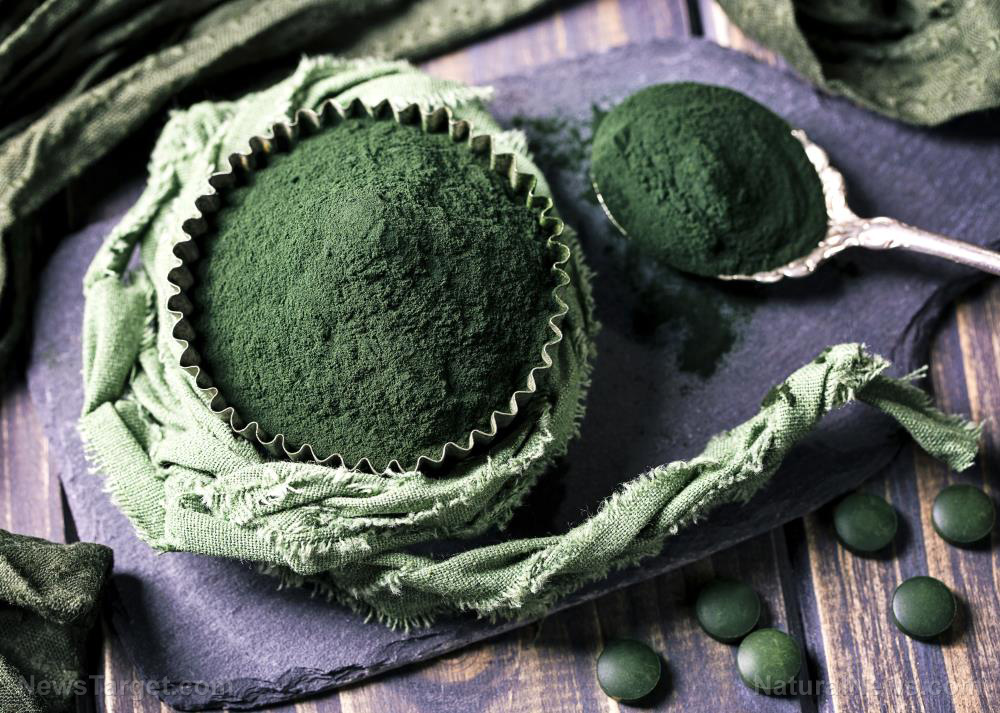
Advertisement
Spirulina is a kind of blue-green alga that grows in both fresh and saltwater. Believed to be one of the oldest life forms on Earth, spirulina has been enjoyed by many cultures for thousands of years. The Aztecs of ancient Mesoamerica, for instance, used spirulina to boost their endurance and treat various diseases.
Today, spirulina is hailed as a superfood. It contains many key nutrients, and it has been shown to confer many health benefits. For instance, a study by researchers from India showed that spirulina can increase the lifespan and improve the locomotor activity of rats with symptoms that mimic Parkinson’s disease, a progressive neurological disorder that causes tremors, slow movement and coordination problems.
Spirulina may help people with Parkinson’s
In their study, the researchers looked at the effects of spirulina treatment on fruit flies. The flies were first exposed to paraquat, a toxic chemical widely used as an herbicide, to induce symptoms similar to those of Parkinson’s disease.
The researchers found that flies treated with spirulina had increased lifespan and locomotor activity, even after they were exposed to paraquat. They attributed spirulina’s beneficial effects to an active component in spirulina called C-phycocyanin (C-PC). C-PC has been studied for its anti-inflammatory effects.
For decades, it has been understood that inflammatory changes occur in the brains of patients with Parkinson’s disease. But only in the last few years has inflammation been viewed as part of the cause of Parkinson’s and not just a result of the disease.
This means that Parkinson’s may start as an abnormal accumulation of proteins in the brain. However, that abnormal accumulation may eventually trigger an inflammatory response that damages the brain and exacerbates Parkinson’s. C-PC in spirulina likely works to combat that inflammatory response.
Overall, the findings suggest that spirulina could be used to improve the lifespan and locomotor behavior of people with Parkinson’s.
More health benefits of spirulina
Due to the presence of powerful compounds like C-PC, spirulina has been linked to other health benefits. These include:
- Provides nutrients – Spirulina contains many essential nutrients, including B vitamins, vitamins C and K, potassium, magnesium and calcium.
- Improves gut health – Previous animal studies suggest that spirulina may preserve healthy gut bacteria as people age.
- Lowers blood sugar – Recent studies have found that spirulina supplementation helps lower fasting blood sugar levels. High fasting blood sugar is a common problem in people with diabetes.
- Lowers cholesterol – Spirulina can lower both total and low-density lipoprotein (LDL), or “bad” cholesterol. High levels of total and LDL cholesterol can put you at an increased risk of heart problems.
- Boosts metabolism – Metabolism is the process by which your body converts what you eat into energy. The faster it is, the more calories you burn and the easier it is to lose weight or keep it off. In a small-scale study, people who took six grams of spirulina daily enjoyed beneficial metabolic effects, as well as weight loss and better quality of life.
How to take spirulina
Spirulina grows in both fresh and saltwater environments. But most of the commercially available spirulina is cultivated in contained pools. Once mature, the spirulina gets pumped out and into a harvesting facility, where the algae get strained. The resulting paste is laid out and washed thrice, then dried and converted into a deep green-colored powder. It can also be processed into a tablet.
Spirulina powder is often added to smoothies, but you can also add it by the teaspoon to water or juice. Drink it quickly so as to not taste its intense earthiness. Be warned: Just a small amount of spirulina powder will change the color of your drink into a deep blue-green color. Drink water after to keep your teeth from being stained.
If you want to try spirulina in smoothies, balance out the overall flavor by combining spirulina powder with naturally sweet fruits, such as bananas and mangoes. If you prefer juice, use the powder in a sweet or tangy juice, like orange or pineapple juice. Additionally, you can also sprinkle spirulina powder on your salads or soups.
Spirulina is a nutrient-dense superfood that could help reduce symptoms of Parkinson’s disease. Spirulina also offers other health benefits, including reduced cholesterol levels and better blood sugar control. Incorporate spirulina into your daily routine to maintain optimal health and well-being.
Sources:
Advertisements







